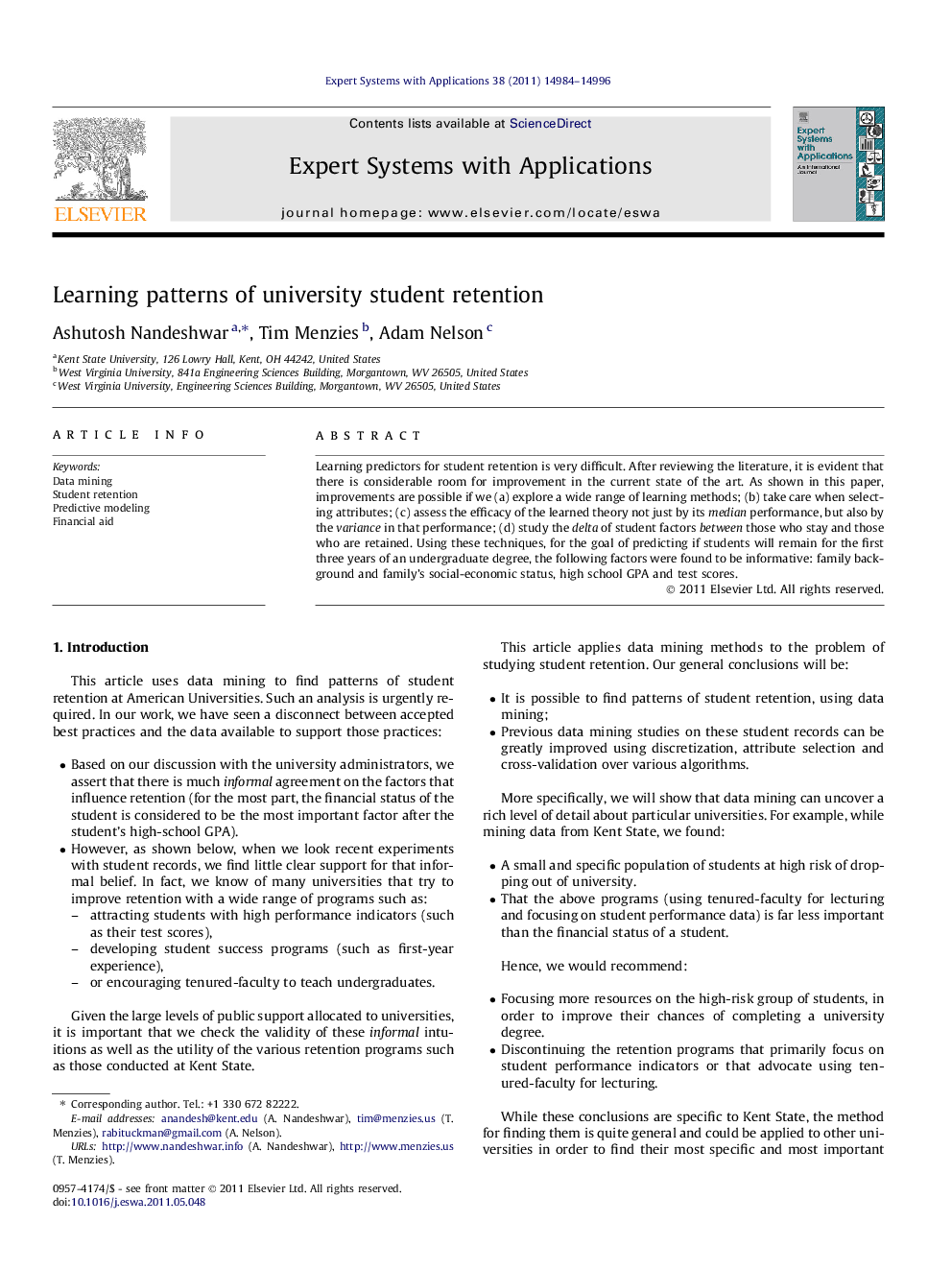| Article ID | Journal | Published Year | Pages | File Type |
|---|---|---|---|---|
| 385123 | Expert Systems with Applications | 2011 | 13 Pages |
Learning predictors for student retention is very difficult. After reviewing the literature, it is evident that there is considerable room for improvement in the current state of the art. As shown in this paper, improvements are possible if we (a) explore a wide range of learning methods; (b) take care when selecting attributes; (c) assess the efficacy of the learned theory not just by its median performance, but also by the variance in that performance; (d) study the delta of student factors between those who stay and those who are retained. Using these techniques, for the goal of predicting if students will remain for the first three years of an undergraduate degree, the following factors were found to be informative: family background and family’s social-economic status, high school GPA and test scores.
► Predicting first-year student retention is very difficult. ► Predicted third-year retention with 15–20% greater accuracy than the baseline. ► Family’s social-economic status and background affects third-year retention. ► First-year data can be used to predict third-year retention.
